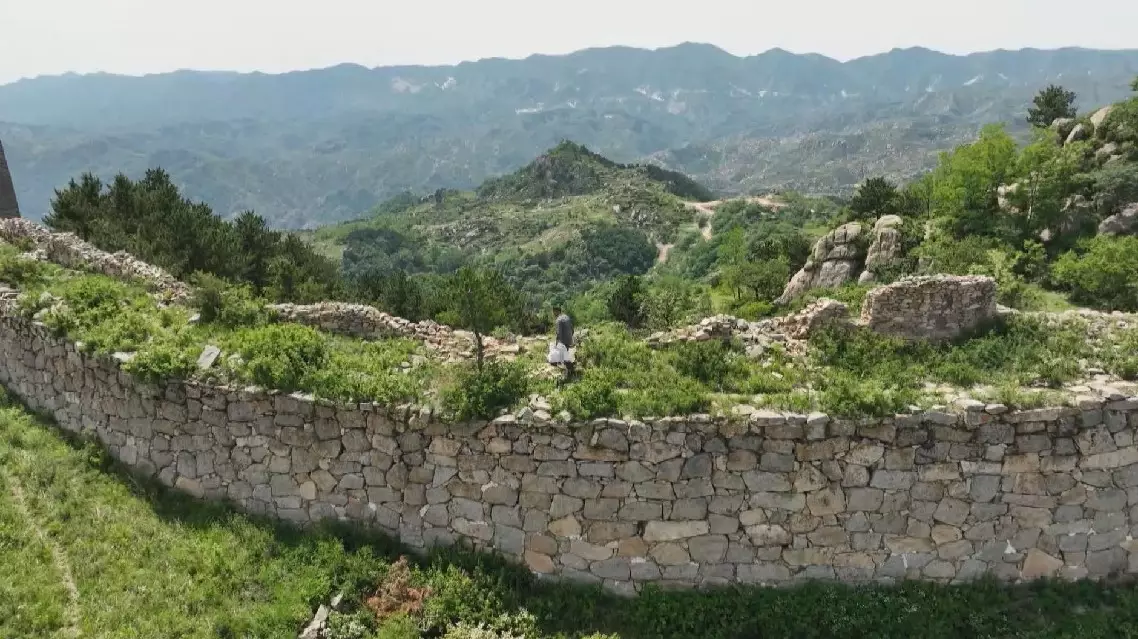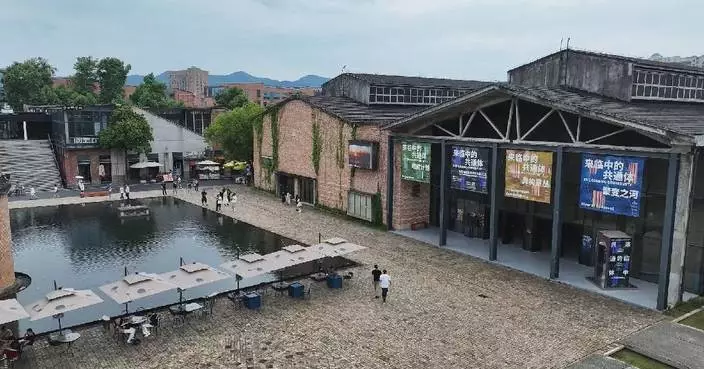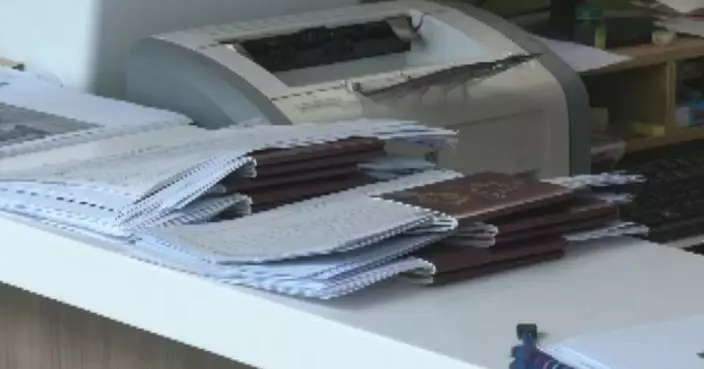The crew members of China's Shenzhou-18 mission have conducted in-orbit electroencephalogram (EEG) tests aboard Tiangong space station.
A video released by China Manned Space Agency on Sunday shows the commander Ye Guangfu and crew members Li Cong and Li Guangsu wearing saline electrode cap and conducting EEG tests in Tianhe core module.
The crew was sent to the orbiting space station for a six-month mission in April this year.
The tests and analysis of EEG signals are expected to shed light on the physiological mechanisms underlying changes in cerebral operational capabilities experienced by astronauts during long-duration space flights.
As one of the projects of space life science and human body research, the test aims to enhance understanding of brain function in space and guide the technological development to support astronauts' performance.

China's Shenzhou-18 crew conducts in-orbit EEG test

China's Shenzhou-18 crew conducts in-orbit EEG test
Li Yong, a young man who was born in 1978 and inherits the responsibility of patrolling a section of the Great Wall in Baoding City, north China's Hebei Province, has honored a long-standing commitment of his family to protecting the important symbol of the Chinese civilization for nine years running.
Li lives in the vicinity of the Great Wall and has grown up listening to stories about the cultural relic.
The section of the Great Wall that Li usually patrols was built during the 1465-1487 period of the Ming Dynasty (1368-1644) and has stood towering in the mountains for nearly 500 years.
During the season of frequent thunderstorms, Li would increase the patrols along the Great Wall from once a week to twice a week. In addition to his essentials -- a sickle and a garbage bag -- Li would also carry a small saw. As the Great Wall is vulnerable to rain, he would cut some dry woods, collect bricks, and use them to support the fragile arch tops of the watchtowers.
"The role of Great Wall guardians was initiated in 1988. In my memory, every village along the Great Wall had to appoint a guardian for the conservation of the ancient structure. At that time, it was purely voluntary, without any pay, so nobody was willing to do it. That's when my father stepped forward and took on the duty," said Li.
In Li's memory, his father was a taciturn man who would persist when he set his mind on something.
Although there was not much conversation between the father and son, whenever the Great Wall was mentioned, the typically reserved father would always become talkative. In Li's eyes, his father grew older day by day while patrolling the Great Wall tirelessly.
His father fell ill around the year 2010, and had since got weaker. It often took the elderly seven to eight hours to cover the whole patrol route which usually took him five hours previously.
"The Great Wall, since it's aged, so needs to be protected. When one generation grows old, our younger generations can take over the duty and continue to protect it, generation after generation," said Li.
In 2015, Li resigned from his job and returned to his hometown, Tangzigou Village, in Laiyuan County and became a Great Wall guardian.
In 2017, as the poverty alleviation policies were implemented in Laiyuan County, the villagers of Tangzigou moved collectively into newly built apartment buildings in the county town.
Nevertheless, Li's family ultimately chose to stay, being the only household in the village to stay at the foot of the Great Wall.
"With the Great Wall always in sight, it was hard to leave it. At that time, I wondered if anyone else would be willing to come and guard the Great Wall if I moved away. I felt that no one would, so I decided to stay and continue guarding the Great Wall," said Li.
Today, Li's efforts in guarding the Great Wall have garnered increasing attention.
The Wuzihao Great Wall Protection Station, built on the site of Li's old house, is the outcome of supports from the Great Wall Protection Association and enthusiasts.
This station includes a Great Wall exhibition hall comprising two rooms, showcasing not only Li's collected treasures from the Great Wall over the years but also donations from across the country.
"Now our exhibition hall hosts hundreds of cultural relics, which is unachievable by relying on just one or two people. So they have not only volunteered themselves but also urged their friends to help us build this exhibition hall," said Li.
Nowadays, most of Li's phone calls are from Great Wall enthusiasts, who mainly call to greet him and discuss the latest happenings regarding the Great Wall.
In their eyes, Li is an "amateur expert" on Great Wall artifacts. With their companionship, Li no longer feels alone in his journey of guarding the Great Wall, and he looks forward to the future with optimism.
"I hope in the future I'm able to operate drones to patrol the Great Wall. In my lifetime, I want to collect more artifacts from the Great Wall. Even if the Great Wall disappears, my artifacts will still remain," said Li.

Hebei local honors generational commitment to Great Wall protection











